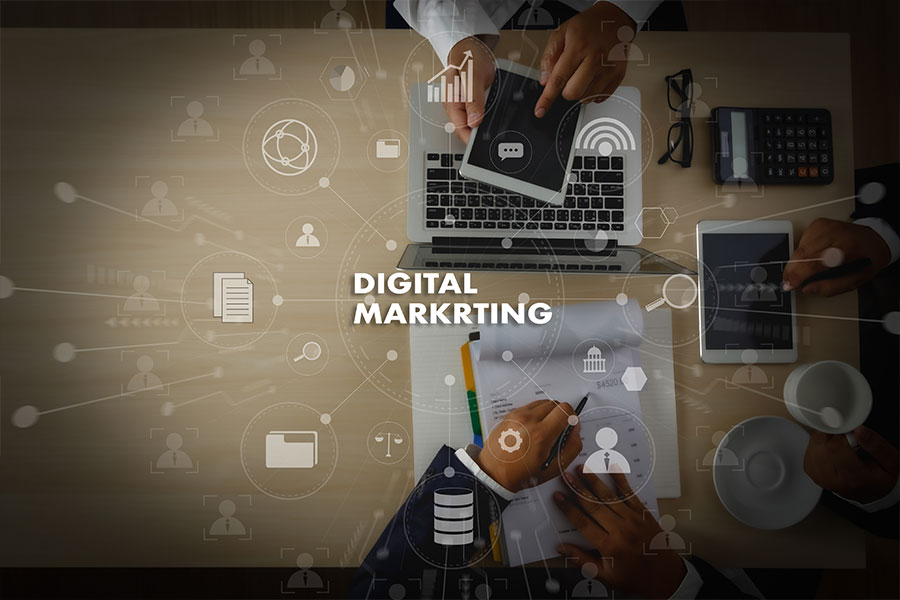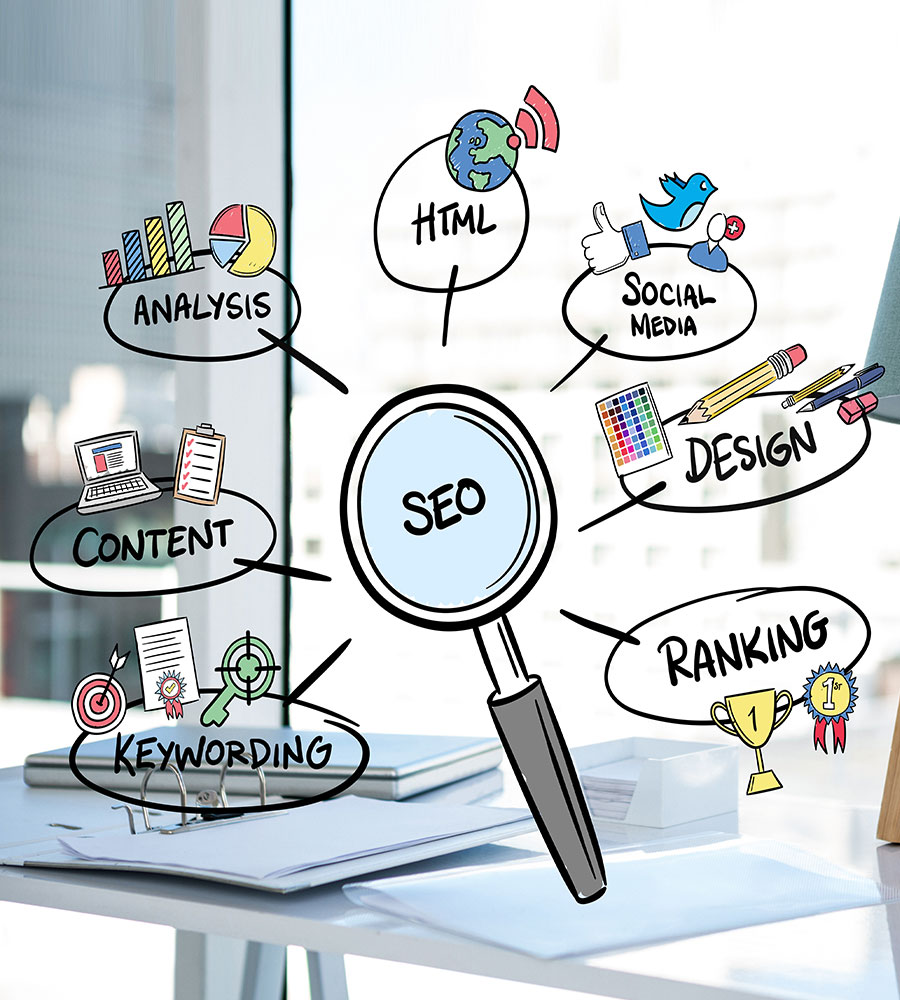Digital marketing, also called online marketing, refers to all marketing efforts that occur on the internet. Businesses leverage digital channels such as search engines, social media, email, and other websites to connect with current and prospective customers. This also includes communication through text or multimedia messages.


How to Do Digital Marketing?
- Define your goals.
- Identify your target audience.
- Establish a budget for each digital channel.
- Strike a good balance between paid and free digital strategies.
- Create engaging content.
- Optimize your digital assets for mobile.
- Conduct keyword research.
- Iterate based on the analytics you measure.
How does a business define Digital Marketing?
At this stage, digital marketing is vital for your business and brand awareness. It seems like every other brand has a website, and if they don't, they at least have a social media presence or digital ad strategy. Digital content and marketing is so common that consumers now expect and rely on it as a way to learn about brands. Because digital marketing has so many possibilities, you can get creative and experiment with a variety of marketing tactics on a budget.
Overall, digital marketing is defined by using numerous digital tactics and channels to connect with customers where they spend much of their time: online. The best digital marketers have a clear picture of how each digital marketing campaign supports their overarching goals. And depending on the goals of their marketing strategy, marketers can support a larger campaign through the free and paid channels at their disposal.


Why is Digital Marketing important?
Digital marketing helps you reach a larger audience than you could through traditional methods and target the prospects that are most likely to buy your product or service. Additionally, it's often more cost-effective than traditional advertising and enables you to measure success on a daily basis and pivot as you see fit.
There are a few major benefits of Digital Marketing:
- You can focus your efforts on only the prospects most likely to purchase your product or service.
- It's more cost-effective than outbound marketing methods.
- Digital marketing evens the playing field within your industry and allows you to compete with bigger brands.
- Digital marketing is measurable.
- Digital marketing is measurable.
- Digital marketing can improve your conversion rate and the quality of your leads.
- You can engage audiences at every stage with digital marketing.


Does digital marketing work for all businesses?
Digital marketing can work for any business in any industry. Regardless of what your company sells, digital marketing still involves building buyer personas to identify your audience's needs, and creating valuable online content. However, that's not to say all businesses should implement a digital marketing strategy in the same way.
Types of Digital Marketing
- Search Engine Optimization (SEO)
- Content Marketing
- Social Media Marketing
- Pay Per Click (PPC)
- Affiliate Marketing
- Native Advertising
- Marketing Automation
- Email Marketing
- Online PR
- Inbound Marketing
- Sponsored Content
- Search Engine Marketing (SEM)
- Instant Messaging Marketing

